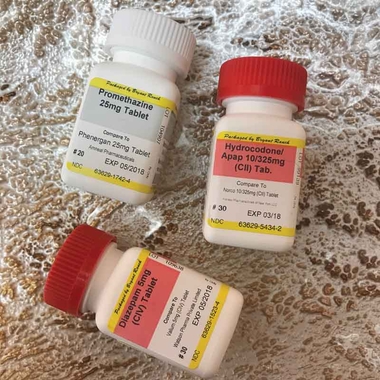Post-operative recovery for the recovering patient

by Courtney Caplin MD, DMD
Cosmetic Surgery Columnist
As September is National Recovery Month, I would like to share a story of a patient who was a recovering addict.
Jennifer came to Cosmetic Surgery Affiliates for a breast augmentation consultation. After taking time to thoroughly discuss implant styles, the differences between silicone and saline and choosing the best one with her, the conversation naturally led to the surgical and post-operative recovery process.
Immediately, I could see how uncomfortable and anxious Jen felt as her chest became flushed and her hands started to fidget. Of course, we had already gone over her complete medical history; she denied any medical problems or current medications but she had not yet divulged that she was not completely “healthy”.
Noticing that there was something on the tip of her tongue that she needed to share, I probed further. After a few simple questions and allowing her time to speak, she opened up about her history of substance abuse and addiction to narcotics and had been recovering for six years now.
I have had many consultations with patients who are interested in elective cosmetic surgery but are recovering from a substance abuse disorder. Knowing the facts that surgery (even elective surgery) will cause some element of pain for a patient, causes a high level of fear and anxiety for patients who are working their program to prevent relapse every day.
The decision on post-operative pain control always starts with a thorough discussion with the patient during the consultation prior to the day of surgery. For Jen, we discussed that although many patients fear the possibility of relapsing, the literature would prove otherwise. The general principle is that pain medication should be prescribed as needed to control surgically induced pain.
Studies have been performed that show that if you restrict and these patients experience pain, they will find a way to get it and could result into using previous sources in an uncontrolled amount. At Cosmetic Surgery Affiliates, I generally recommend the follow strategies:
• Limit the amount of medication to an appropriate dosage and schedule for the anticipated pain.
• Let a caretaker be responsible for holding and dispensing only as needed and wean appropriately.
• Take full advantage of multi-modal pain control. The body has many different receptors that mediate pain, so why not block as many as possible.
For Jen, we discussed that I generously use local anesthetic to numb as much of the pain for immediate post-operative pain control. Of course, this does wear off, but at least the first few hours are more tolerable. She would be given an appropriate amount of hydrocodone but her partner would be responsible for it.
I will also prescribe a muscle relaxer to help relieve muscle spasms which are often a large contributing culprit to the overall pain experienced after breast augmentation. Additionally, I recommend Tylenol and Ibuprofen which work at yet additional pain receptors. Not only can we block the pain at different levels, the patient can schedule to take one of the medications every few hours, without ever having to ride the roller coaster of pain and pain relief if he or she were on only one medication that was wearing off.
I have some patients who are currently in a maintenance program and some who are on a prescription medication to help wean them off medication. For these patients, I will discuss a plan with the patient first and then the prescribing provider. Many options exist for these patients; the key is that a plan is determined prior to surgery.
Regardless of previous substance abuse or addiction, we can always form a reasonable treatment plan for pain control after surgery.
Copyright The Gayly – September 19, 2017 @ 11:30 a.m. CDT.





